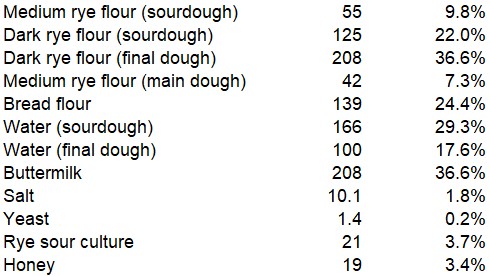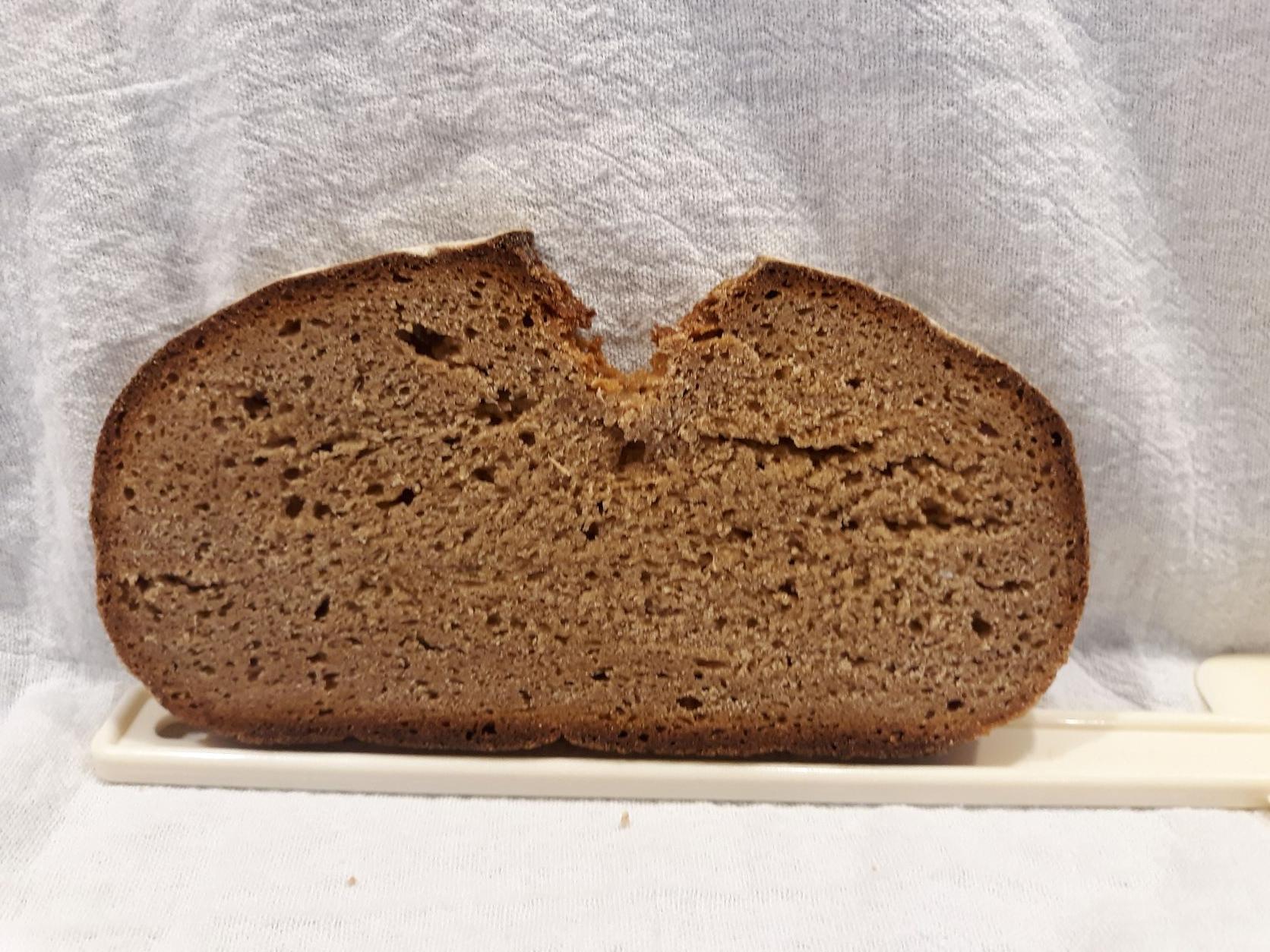
Schwarz(roggen)brot mit Buttermilch

This recipe for Black Rye Bread with Buttermilk is from Der Foodcoach blog. I did not have Austrian R960 (light) rye flour or fresh yeast and used King Arthur Medium Rye and IDY instead. But I do have a lot of Wingold Dark Rye from Bay State Milling via NYBakers that was used for the Schwarzroggen (black rye).
The dough rose more slowly than expected. In a prior attempt of this recipe, I saw little activity in the 3 hour cold proof. This time I let the dough proof at 21 °C instead of in the refrigerator, and it had achieved ≈85% rise in 3 hours. It could be the IDY was not mixed properly in the stiff dough; I could see grains of IDY in the dough even after mixing. It would have been better to dissolve the IDY in the water used for the main dough. It could also be that the hydration was too low because of the substitution of medium rye for the light rye. I’m still getting the used to the proper hydration of rye dough.
Formula:
The loaf was baked a total of 60 minutes because I had read on another German-language blog that dough that uses R2500 flour should be baked not less than 60 minutes. The crumb is tight and only slightly sticky. The bread has a pronounced sour, not surprising with the sour culture and buttermilk. I liked the flavor but the sourness does limit the generality of the bread.
A slice at 5 days post-bake from near an end of the loaf shows some loss of structure. Is this due to poor shaping, incorrect hydration, or incorrect proofing?



Comments
I think your guess is right, hydration might need to be slightly higher with different flour. Same with dissolving yeast in water. And rye doughs, in my opinion, benefit from warmth.
Thank you for the tips. I am suspicious of the refrigerator proof in that recipe.
I only put my dough in the refrigerator if I have to. Sometimes I let the first stage preferment to spent some time in the cold, if I need to boost acidity. Other then that I usually keep them in the oven with the light on, or on the stove top, while the oven is preheating.
Speaking of dough consistency, you may try this: When you form your loaf grab it underneath with both palms of your hands, like in the basket. If it holds it's shape, then the consistency is good for the free standing loaf.
I really like the height of your bread. Personally, I don't mind dense crumb in rye especially if it's nice and moist
Thanks for the tip about the dough. I'll have to try that next time.
I still have trouble figuring out when my dough is under-hydrated. I think that would help some of my rye loaves
Yes that makes sense, the change from light rye to medium rye probably required more water than you used which would then also effect the rate of fermentation. Despite that I think you did well with this good looking loaf of rye.
Benny
Thanks, Benny. The appearance of my free-formed loaves has been hit-or-miss. But that one came out pretty good. I'm mostly concerned with flavor and structure at my level of bread baking skill, but I'm always pleased when a loaf looks good, too..
and I think your suggestions for the next run are sound. Dissolve the yeast, maybe a bit more water, and skip the cooling down in the fridge. I stick to my comments on the community bake.
Mini